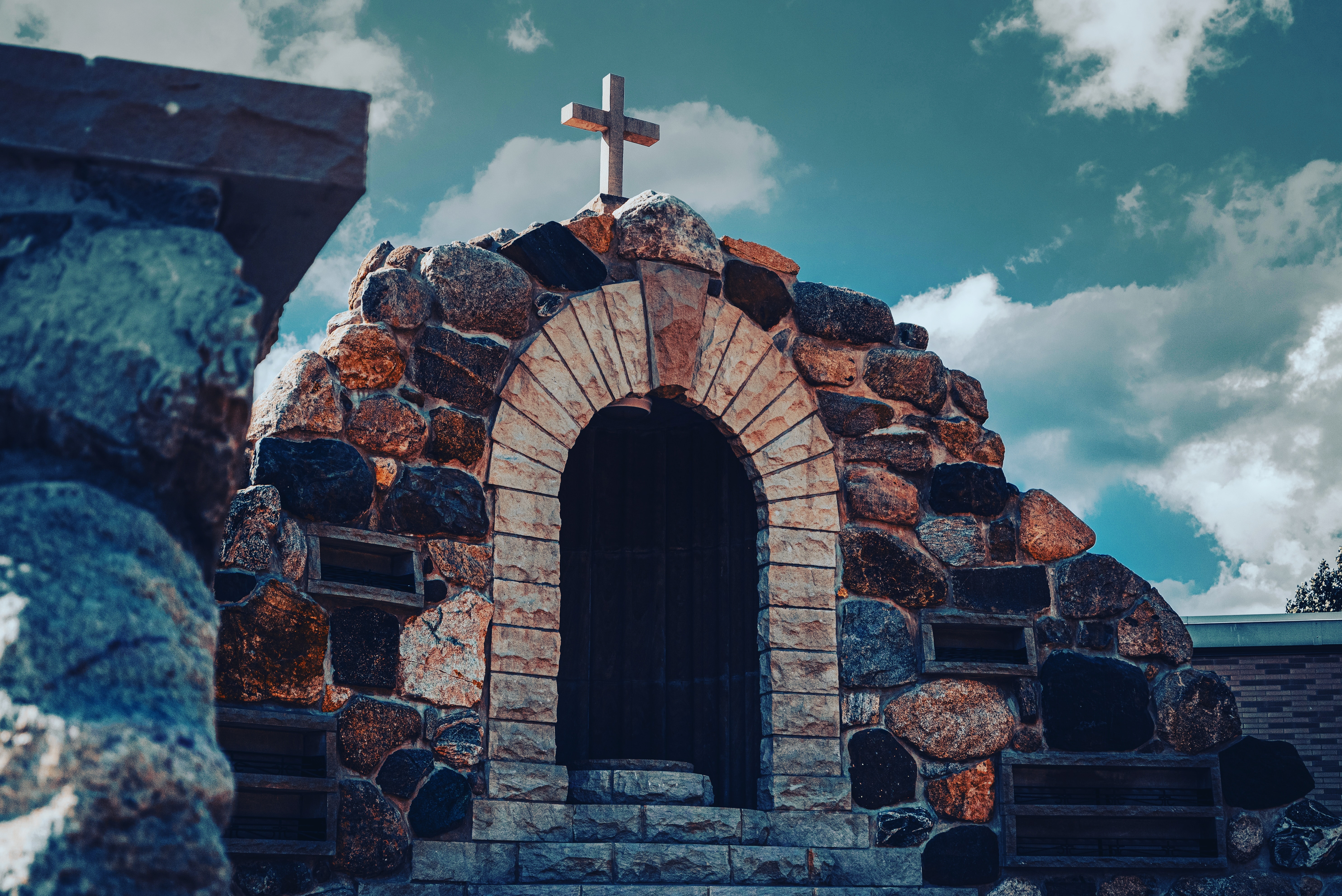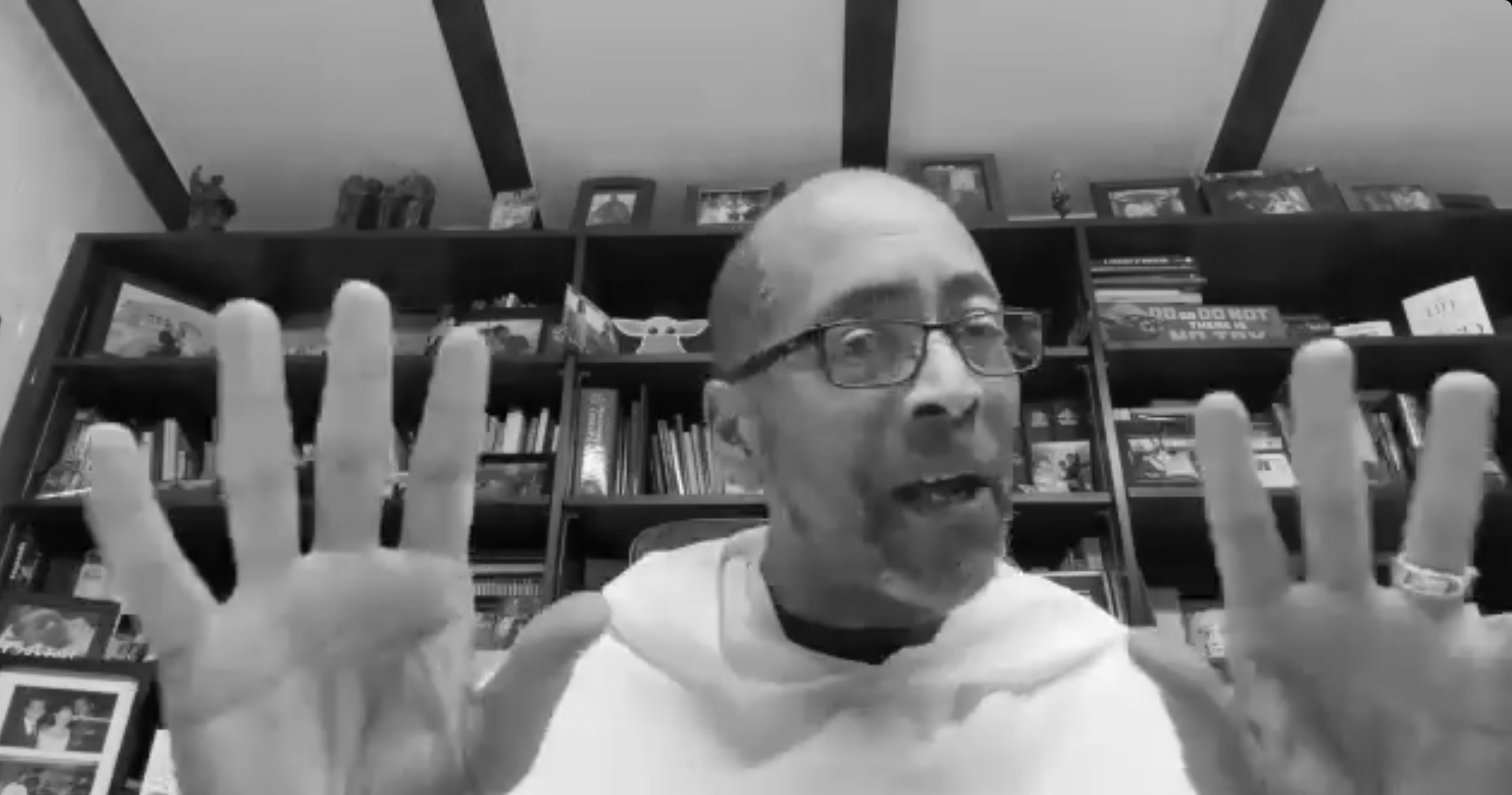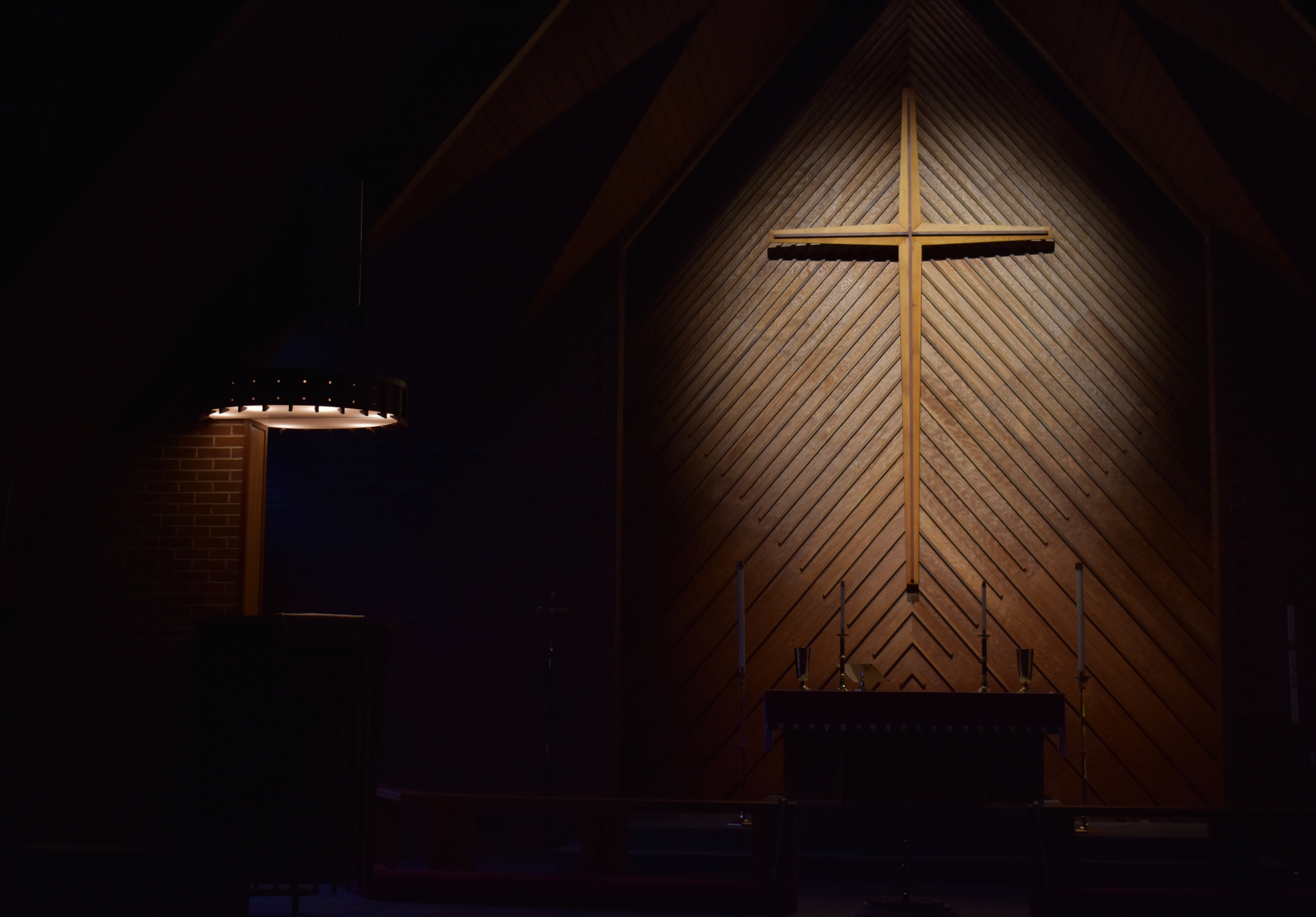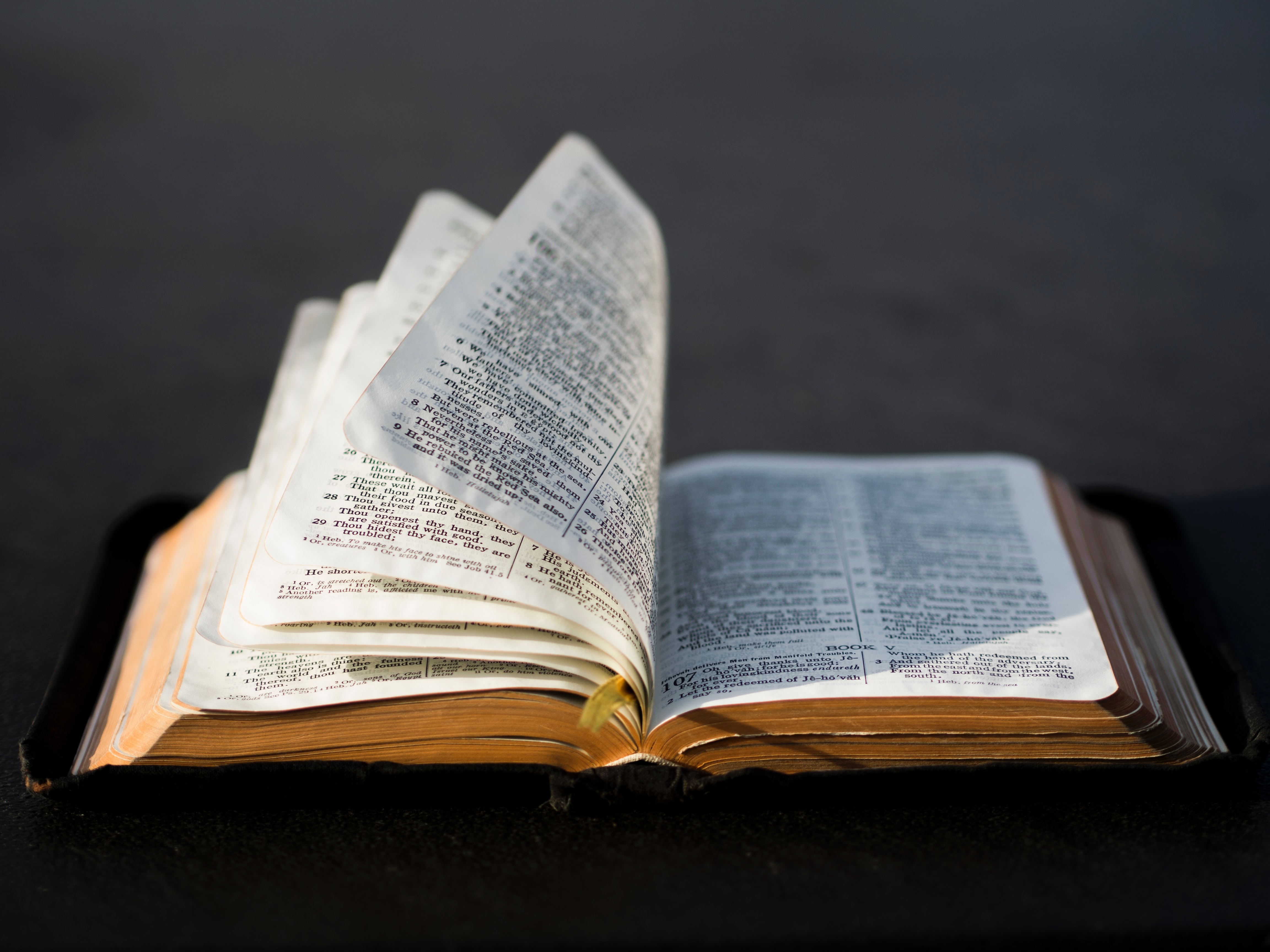"it did begin this conversation locally of embracing the history, the gift of Blackness in this archdiocese no matter how much it had been suppressed in the past"
Knowing our roots, our church history is very important. Deacon Royce Winters shares his experience creating the "Celebrating Black Catholic History Month: Tracing Your Catholic Roots" project from the Office of African-American Catholic Ministries in the Archdiocese of Cincinnati. Deacon Winters talks about how he tried to capture the history and voices of Black Catholics, particularly from priests and parishioners in the Archdiocese.
You can check out the project from the Archdiocese of Cincinnati from the following link: https://resources.catholicaoc.org/offices/african-american-pastoral-ministries/publications
The following are edited excerpts and outline of the conversation from this podcast interview.
[00:00:24] Deacon Winters, looking back on it, what were the benefits that came from producing such a project: Celebrating Black Catholic History Month, Tracing Your Catholic Roots?
You know, the biggest benefit, I’ll have to start with myself. I’m a convert to Catholicism, so as an adult at 22 years old, I came into the Church, baptized on Easter Sunday, Easter Vigil with my three -year -old daughter, right. We came into the Church together and my journey began there. But then after 27 years of serving on the Cincinnati Police Department as a police officer, somewhere in the last five years I began formation to become a Deacon and the African American Ministries Office for the Archdiocese of Cincinnati had an opening. I applied for it. They hired me as the Director of African American Catholic Ministries.
I soon found out in my own research that I didn’t know much about being Catholic, much less being Black and Catholic. So that I began as a part of celebrating National Black Catholic History Month, which was really, it was inaugurated in November of 1990, that we began, that I began this project of researching what did it mean to be Black and Catholic in this archdiocese of Cincinnati. So it was a great benefit for me to dive into the archives of the Archdiocese of Cincinnati, but also all of the archive records for the Catholic Telegraph and just some great stories and it allowed me to meet some great people.
[00:01:59] It seemed like a very well researched and put together document where you got the history and also the voices of the parishioners. How hard was it to get that information, both if it was available or if people were willing to share it?
The hardest part was reaching out to the various peoples to capture the voices, as you said, to capture the voices of the people who have lived out this faith in the Archdiocese of Cincinnati. And the underpinning of it all was that in the Midwest, and when I say Midwest I’m including the Archdiocese of Cincinnati, is that there’s always been this question of how can you be Black and Catholic. Every time I’ve gone somewhere and people say, “I didn’t know there were Black Catholics.” Right, so the underpinning was to unearth this history. And what I came to understand, there have been people who’ve been Black and Catholic all their lives, right. It is what they know, it’s who they are…
[00:03:17] Have you seen the project expand to other places outside of the Archdiocese? Have you heard any kind of feedback from other folks outside of the archdiocese?
You know, the reality of the question that also was unearthed is, depends on where you are in our country. You know, if you’re down in Louisiana, it’s rich with Black Catholic and that experience. If you’re in Detroit, if you’re in Atlanta, if you’re in those places that have a high population of Black folk and also this Catholic heritage, you hear different questions but the appreciation was that the information was there, but also there were people who were able to tell their stories and we can enter into those stories no matter what part of the country that we are because we’ve had that similar experience. That, though Black and Catholic, culture may be different but there is a Black experience within the Catholic Church that just rings out loud no matter who people, what the people are that you’re talking to.
The biggest response was in the first edition. There were people who responded to it and said, “there’s so much history left out. There’s so many voices left out there.” You know, to think, I began even in the process I was trying to name those first Black parishes in the archdiocese and you know, you really didn’t, in the archdiocese, you really didn’t start out with parishes. They were missions, they were missions where white folk or white parishes were, rather than have Black folk join them as a community, “we’re gonna start a mission parish, you know, and you stay where you are, we stay where we are, we can be Catholic separate.”
The other piece was that it did begin this conversation locally of embracing the history, the gift of Blackness in this archdiocese no matter how much it had been suppressed in the past. Just to hear those stories of, it was Archbishop McNicholas who in 1942 had to write a letter to his priest saying to them that ministry to Black people was now an ordinary assignment and we need some priests to step up. That also meant that there were priests who were not willing to do that. And that’s been, so what’s happening in society, this separateness, this racial injustice that was going on in society, it was in the Church. But that’s how it always is, if it’s happening in society it finds its way into the Church and we have to negotiate that. Meaning that we have to live that faith out and find who we are as true witnesses.
The other part was having this great mentor who was a Fr. Clarence Joseph Rivers. He was the first Black priest ordained in the Diocese of Cincinnati in 1956. And our relationship began when I was searching for God, searching for a place to land. I went to all kinds of churches, Pentecostal churches, Holiness churches, Southern Baptist churches, AME churches. But I walked into a Catholic church and the liturgy caught me and Fr. Rivers was preaching that day and his homily, he was preaching about racism and I went to him afterwards and said, “I’m searching for God and you’re preaching about racism” and I couldn’t make the connection and he just told me I didn’t know who I was. I didn’t know who I was and one, it pierced me because it was true. I didn’t know who I was as a Black person, but I certainly didn’t know who I was as a Catholic person.
But he didn’t want me to do that and he and I developed this relationship where we traveled around the Midwest giving talks and he was the one that, the first Black priest in the Midwest, that people would talk about and was Fr. Clarence Joseph Rivers, and what they wanted to hear roll off his lips was:
God is love
and he who abides in love
abides in God
and God in him
And that was the first song that in the Black Catholic community that people just gravitated to. But not only the Black folk, the white folk and who we’re hearing that, there was a richness in that. And it just, it kind of bonded us together to go forth and preach this Good Word.
[00:07:51] You try to capture people’s voices, let their own writings speak through the document. What prompted you to lay it out like that and let the people’s voices themselves speak out?
You know to speak about what it meant to be Black and Catholic had to be connected to the larger story and what it meant to be Catholic first. But then also to dive into this separateness that was going on in the society and in the Church. And the best way for me to catalog that was to go into the archives, to go into the Catholic newspaper and see the stories, and unearth them and I didn’t have to find the words. The documents themselves spoke truth of what was going on at the time.
And to lay that out, it was easier to go deeper into the archives, into the Catholic Telegraph because that is in writing and all I have to do is pull it out. I’ve got a lot of research and pulling which stories you’re going to use. What’s important? But this collective story of being Black and Catholic in the United States and then to, within that lens, to then dive into: in this archdiocese, what was the gift but also what are the challenges?
And then the beauty then led out to, within those articles, began to name people who were still living. And to go out and interview them and to go out and meet those and to have them share photos. You know, a couple of those articles that I can recall that was just beautiful. I have a family and they’re still members of the church that I belong to, the parish that I belong to, that there was an article from Mother of God Mission, which was in a Black neighborhood here in Cincinnati. And they had never seen the article, they reckon, “hey, that’s our family. We were the family that came in.” And so to share that kind of joy that they never had seen it…
And then another lady from another Mission Church in Cincinnati that had closed and she saw that photograph and then we went and interviewed her, and she shared her story, her friends, about what it meant to be a young Black person, teenager and to come into the Church as a teenager. So not only those lives that live from the archival work that was there, but to talk about the live stories of people who are living today…one of the great ways that we pass down faith is the sharing of stories and the ability to look back and see how God had been walking with us in those times.
[00:13:53] Have you come across another part of the country that also has a similar document that tries to capture that Black Catholic history within their archdiocese?
You know, what was unique about this project was that, here’s the Archdiocese that has less than 3% Black Catholic population, so that it was easy to get lost. As society changed and express ways came through and they decided what properties they were going to take, it changed whole Black communities and people began to disperse. And for those Black Catholic cities and archdiocese where there is a significant number of Black folk, they did a better job of retaining that history. It was a challenge for us because as we began to close parishes, it is always the urban parishes that close first.
Why would that be so? It’s that, I’ll use my example of my parish that was started in 1890, a German Catholic community. In the 60s we had the riots and then there were folk whose parents and grandparents and their great-great-grandparents built a church and a school but because the neighborhood changed they left all that. That is, as those communities became more Black and brown, the parish became more Black and brown but with less resources. So that without those human resources but also they were financial resources, those large buildings take a toll. So that, and there was a great project to claim a history but to also talk about the resilience, the endurance that it takes to celebrate and to retain culture…
[00:17:00] Were some of these mentioned parishes closed? Is this document now one of the few remaining that captures what was there before?
So in 2007, 2009, we had 11 predominantly Black Catholic parishes in the Archdiocese. Today in 2023, there are four. St. Joseph, which is in our West End, was the first Black parish, not mission, but the first Black parish for Black folk. We have the Church of the Resurrection, which is in Bond Hill in Cincinnati, which is where I am the Pastor Administrator, Deacon and serve there. But in 2012, we merged four churches into an existing facility in my own life. Then we have a Mission church that’s still open, which is Mother of Christ. Again, all of these are in Black neighborhoods. And then the next one is, even though it’s Archdiocese of Cincinnati, it’s in Dayton: St. Benedict the Moor. St. Benedict the Moor was the first Black parish built for Black folk. Not a mission, but Black folk.
And so that, even though, as we recognize that there are people who are leaving the Church, the smaller churches are being hurt as well. It’s that we reflect society, so that the reality of when you have a parish and you don’t have a school, where are your young people coming from? That the school system provided a wonderful opportunity for us to form children but if there are not a Catholic school in the neighborhood where the parish is, then most of our children are finding their social educational needs outside of the community where the Church belongs, and for them to come back to the neighborhood the challenge of just being at Sunday Church is, sometimes it’s not easy to overcome that burden.
[00:19:22] You are rightfully speaking on the consequences to certain decisions that people don’t take into account, what the after effects will be.
You know, even today, my current parish, we have parishioners who are coming from 46 different zip codes. They’re driving past Catholic parishes to get to us. They’re getting to us because there’s a spirituality that speaks of a God who is present. A God who is hospitable and loving, and everybody is welcome. But we also don’t look at the great damage that it did, in a sense, people always say, “well, why don’t we have Black vocations?” Meaning Black religious vocation. Well, we have to realize that not only in this diocese, but other dioceses, the Church said to Black families, “we don’t need your vocations.”
So that meant parents, grandparents, great grandparents weren’t inviting their children to even pray about entering into a religious vocation. And then again, since 1956, we’ve only had two other Black priests ordained in this Archdiocese. But all of them were, and including me as a Deacon and the other black Deacons that we’ve had here, all of us were, we weren’t born in the Church. We were converts and we’re on fire and we bring a great enthusiasm but we realized that when schools leave the neighborhood, Catholic schools leave the neighborhood, you lose that opportunity to have a direct effort at being fruitful in creating vocations. Because all of us at some point, I mean I came as an adult, but all the others were raised in a Catholic school where some priest, some nun, some religious person had shared their vocation and they said, “I wanna do that too.” So you lose that ability…
[00:22:04] For others, once they decide they want to be a priest there’s a challenge of entering seminary. And that seminarian life, because they’re the only Black person, they’re the only minority, they have a very harsh experience and some of them end up leaving
…at the time and let’s say that we were talking about the 40s, 50s, 60s where the Church said to Black men here in this Archdiocese that if you wanted to go to formation as a religious priest, you had to go to Bay St. Louis, Mississippi. Society of the Divine Word. And there were people who went but were homesick.
And then you have even this conversation now that’s happening, where we have African priests, Africans who are in the seminary studying and my conversation has been, is that in order for them to succeed, to withstand the pressures of being African in a majority white seminary, is that you have to assimilate so much that you lose a part of yourself. That to go to a first Mass of African who was ordained a priest in the Archdiocese and if I close my eyes I will never recognize that there was any culture other than Eurocentric culture at that Mass…that’s still the issue that we have today in forming men and women for faith.
[00:24:02] It means so much when you can see yourself up there in the altar as an altar server, as a priest, as a deacon. For children that image says a lot to think, “oh, maybe I can do that as well.” But if there’s roadblocks for people even being allowed in those positions, those roles, then it creates a downward spiral where children can’t even see themselves being a deacon or altar server or priest.
You know, just bringing that up made me smile because it reminds me of a story of my grandson who was attending a Catholic school and he was processing to receive communion and they wouldn’t give him communion. And he kept telling him that he was Catholic. And they said, “you’re not Catholic.” And he came home and told us the story so I went up and talked to the people and it was like, “well, we didn’t believe him…”
[00:27:49] At the end of all the interviews we ask all the guests the same 3 brief questions. The first is what is one scripture verse or part of the Bible that really resonates with you and why?
Paul has a reading from second Corinthians chapter 4 where it begins with “we are earthen vessels” and then he talks about that “we’re perplexed but not in despair” and then it begins to talk about living through that endurance and all of that that presses upon us that sometimes challenge whether our faith is real or not. But I’m paraphrasing that Jesus is still alive in us, that though we, again, interpreting what I think it means for me, is that as we endure the hardships of life it is faith that we lean on that provides us this joy and hope that overcomes all things. And I add to that, when it says “rejoice to the Lord always” and again “I say rejoice” from the first Thessalonians, reminds us that in order to do that kind of rejoicing you have to have a relationship with Jesus. As a person of faith, faith does not sustain itself unless it’s rooted in Jesus. So it is that acknowledging that there is suffering and trials with too that faith leads us to a place where we can rejoice anyway.
[00:29:20] My second question is, what is one word or a couple of words that you would like God to use in describing you?
That he had the desire to seek God in his word but in his people…A desire to seek God in his people but also in his word…of all the people of faith that leaps out of scriptures that they had a desire for God, their heart was set on God…
[00:30:00] Lastly, are there any last comments, things you want to add, you want us to help you promote or others to support?
We’re at this point in our lives as a faith-filled people that I would encourage everyone as Pope Francis did in the Joy of the Gospel, to seek an encounter with the Christ so that it would change their lives but it would change our world. This, a commitment to being formed once again, as we’ve heard in other places, be born again. Be born again but to have it how is God present now and how is God asking us to change so that other people can witness the glory of God in our midst. So that we would commit ourselves to being formed once more, to be prepared to share the Good News so that as we would take up on that invitation from Pope Francis to be engaged, to be formed so that we can have a new encounter.





